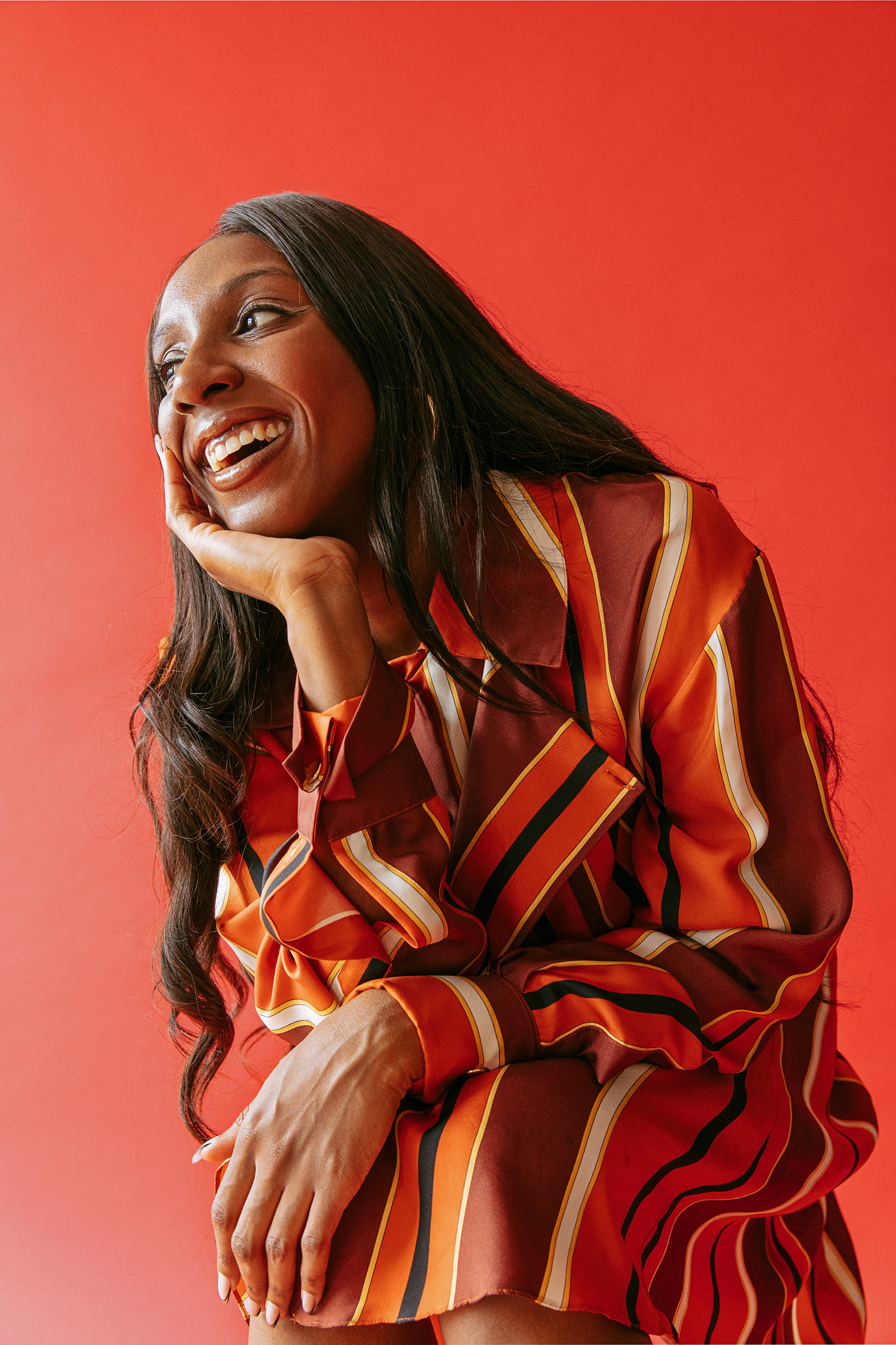The questions that Ziwe Fumudoh spent the summer lobbing at guests on her Instagram Live show are the kind that usually go unasked: “How many Black friends do you have? Did your family own slaves? What does white privilege mean to you?”
But, while those topics may make some of her guests uncomfortable, they’ve also made her IG Live show, which launched this spring to fill the void after her live comedy shows were canceled due to COVID-19, one of the pandemic’s most viral diversions. The weekly broadcast, inspired by Baited, the riotous YouTube series she created in 2017, consists of Fumudoh asking “iconic guests”—an eclectic mix of fellow comedians, friends and public figures—unflinchingly honest and, at times, outrageous questions about race. Three of the most memorable interviews featured a handful of controversial white women—influencer Caroline Calloway, cookbook author Alison Roman, and actor Rose McGowan—who blushed and stumbled over their words in an effort to avoid coming across as racist.
Thanks to Fumudoh, the show is both educational and lighthearted—and can provide a framework for viewers to have difficult conversations about race in their own lives. “While it’s ingrained in every fabric of our nation, it is something that we are explicitly told: do not talk about this; it makes everyone uncomfortable,” says the 28-year-old comedian. “All I’m trying to do is have substantive conversations about race in a way that’s funny and light and jovial.”

Fumudoh—who grew up in Lawrence, Mass., as the daughter of Nigerian immigrants—says she’s been preparing her whole life for these conversations, moving through predominantly white institutions, from Phillips Academy Andover to Northwestern University, where she majored in African American studies, poetry, and film. She didn’t seriously consider a career in comedy until she landed an internship at Comedy Central during college, the same program that Donald Glover, one of her inspirations, had done years earlier. Later, doing stand-up in a world dominated by white guys, Fumudoh found she captivated audiences most when she drew on her own experiences with race in America. After stints with The Onion and The Rundown with Robin Thede, she’s now a writer for late-night show Desus & Mero and works on her IG Live show in her spare time.
“I’ve been preparing my whole life to talk about race because as a Black woman, I am confronted about race all the time, people want to talk to me about race all the time,” she says. “So to turn that lens back on people, I find that easy. These are things that I’m constantly talking about.”
Fumudoh hopes that her show offers not just laughs, but a chance for growth—the kind that can only come from acknowledging where problems exist. For now, her IG Live show is temporarily on hiatus— though she might reconsider if she landed her dream guest New York City Mayor Bill DeBlasio—as she focuses on writing her upcoming collection of essays, The Book of Ziwe.
Even so, she hopes the conversations won’t stop. “I want my audience to take a good look at themselves and ask, ‘How would I answer these questions? Am I uncomfortable with talking about race?’” Fumudoh says. “Everything about our world is about race. This should be the easiest conversation and yet, somehow it’s the most difficult.”
- The 100 Most Influential People of 2024
- The Revolution of Yulia Navalnaya
- 6 Compliments That Land Every Time
- What's the Deal With the Bitcoin Halving?
- If You're Dating Right Now, You're Brave: Column
- The AI That Could Heal a Divided Internet
- Fallout Is a Brilliant Model for the Future of Video Game Adaptations
- Want Weekly Recs on What to Watch, Read, and More? Sign Up for Worth Your Time